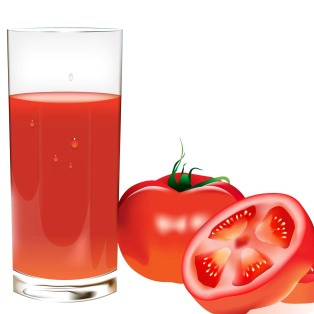The grapefruit diet also known as The Hollywood Diet, has been around since the 1930’s and has experienced a massive boost in popularity during the 70’s. The Grapefruit Diet advocates the “fat-burning” effects of regular grapefruit consumption. Nevertheless, eating too much of anything can have negative health effects. Is it also the case with the Grapefruit Diet?

The rules of the Grapefruit Diet
This diet has many variations, but the original one was designed to last 12 days with 2-day breaks in between. The rules are pretty simple:
1. You have to eat 3 meals every day and a bedtime snack.
2. At every meal, you should eat ½ of grapefruit or drink 8 ounces of unsweetened grapefruit juice (no more, no less).
3. You can eat until you are full at any meal. Except for the grapefruit, the other foods can be eaten in unlimited amounts.
4. None of the recommended foods can be eliminated from your meals.
5. Snacking between meals is forbidden.
6. Only 1 cup of coffee/day is allowed.
7. You are free to cook your meals in any style as long as they only include the allowed foods.
8. Drink 8 glasses of water every day.
The Grapefruit Diet Plan
Breakfast
– The recommended amount of grapefruit or grapefruit juice
– 2 slices of bacon and 2 eggs
Lunch
– The recommended amount of grapefruit or grapefruit juice
– Any meat or fish cooked in any style
– Salad with dressing or a cooked red/green vegetable
Dinner
– The recommended amount of grapefruit or grapefruit juice
– Salad with dressing
– Any meat cooked in any style
Bedtime Snack
– 8 ounces of tomato juice or skim milk

Allowable and non-allowable foods
Allowable foods include bell peppers, red onions, broccoli, radishes, leaf spinach, starchy vegetables, cereal, corn, fruits, meat, fish, pasta, peanut butter, jam, jelly, pretzels, sweet pickles, low-fat and fat-free salad dressings.
Non-allowable foods: white onions, green onions, bread, potatoes and potato chips, cabbage, tomatoes, green beans, celery, peas, cucumbers, carrots, lettuce, chili, cheese, mayonnaise, hot dogs, green vegetables, dill, nuts.
The risks and benefits of the grapefruit diet
Grapefruits are low in calories and high in vitamin C, antioxidants, and lycopene, a substance which, according to several studies, can reduce the risk of developing various types of cancer. A Scripps Clinic Nutrition and Metabolic Research Center study revealed that grapefruit influences weight loss. While the study participants did not follow the Grapefruit Diet, grapefruit and grapefruit juice were added to their usual diet for 12 weeks, with no other changes in their eating habits. Also, the participants performed slightly more physical exercise. On average, participants who ate half a grapefruit at every meal lost 1.6 kilograms, and those who drank grapefruit juice lost 1.5 kilograms. The placebo group had only lost 0.3 kilograms, so the difference between with and without grapefruit is clearly visible. Apparently, grapefruit reduces insulin levels, which has a significant role in regulating the metabolism.
Even if the weight-loss mechanism is still unknown, we can at least say that while grapefruit is hardly a miraculous weight-loss solution, it does have a certain influence. The problem is that the study was not about the Grapefruit Diet itself, it was only about regular consumption of grapefruits added to normal eating habits. The Grapefruit Diet may work, but its food limitations can cause a lack of nutrients in the human organism. Another problem is that the diet encourages its followers to eat as much food as they want at the recommended meals. This can lead to indigestion and other stomach conditions.
Grapefruits can interact with several medications, such as sedatives, immuno-suppressants, antidepressants, antihistamines, oral contraceptives, and heart and cholesterol medications. The grapefruit can also raise estrogen levels in the blood, which is associated with an increased risk of breast cancer.
Conclusion
All fruits have health benefits, and grapefruits make no exception. When it comes to excessive consumption, things may not be the same. That is why the Grapefruit Diet, if followed by a healthy individual on the short-term, can be completely safe, but in other cases, it can lead to numerous health problems, especially when held for too long. Also, in many cases, weight loss via fad diets, such as the Grapefruit Diet, tends to return after a short while. Probably because this type of diet doesn’t educate its followers into adopting a healthier lifestyle, and most of them return to their unhealthy eating habits once the diet is over.
